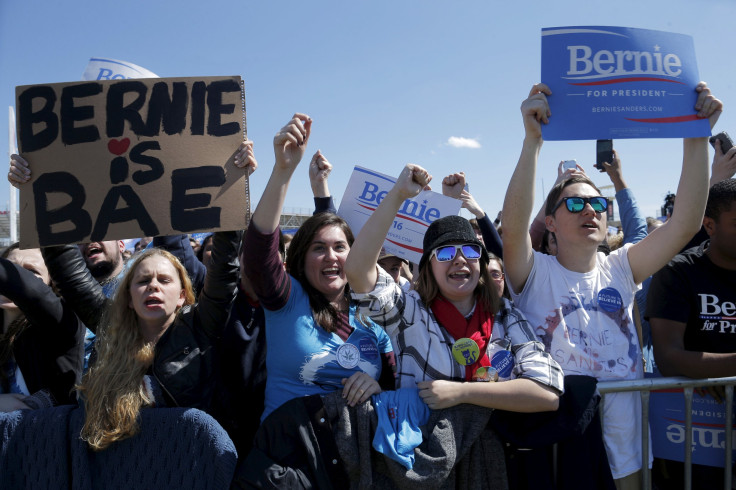Is Bernie Sanders A Socialist Or A Communist? Democratic Candidate Is Carrying A Hefty Label

While Vermont Sen. Bernie Sanders has risen in polls nationwide, his political philosophy has become a major talking point in the media and for voters. Sanders, a self-proclaimed Democratic socialist, has championed a mantle and label that has been considered something of a third rail in American politics.
But, what exactly is a Democratic Socialist and how is that different from a standard socialist or a communist?
The philosophy, according to the Democratic Socialists of the United States, says that a country’s economy and society in general should be run according to principles of a democracy and should meet the needs of the public. Democratic Socialists like Sanders take issue with the notion that a society would overly benefit or reap profits for a small few. The idea is to have a country and governing system that lifts up all of its citizens and in which all of the major decisions on economic and social decisions are made by those who are most closely affected by the policies.
There’s a notable difference between that philosophy and straight socialism or communism. Socialists, simply put, want a society in which all major industries are owned or regulated by the government — rather than by individuals and the wealthy elite — in order to promote equality among citizens. Democratic socialists do not necessarily want the state to own all of the means of production within society and do not strive for a large bureaucratic system in which all industries are controlled.
Communism, on the other hand, looks to promote shared and common ownership of industries. Under the system, all basic questions within an economy are decided by the government. Who gets to buy and own what, and from what store, are all decisions made by the government. What products will be created, too, are determined by the government.
© Copyright IBTimes 2025. All rights reserved.






















